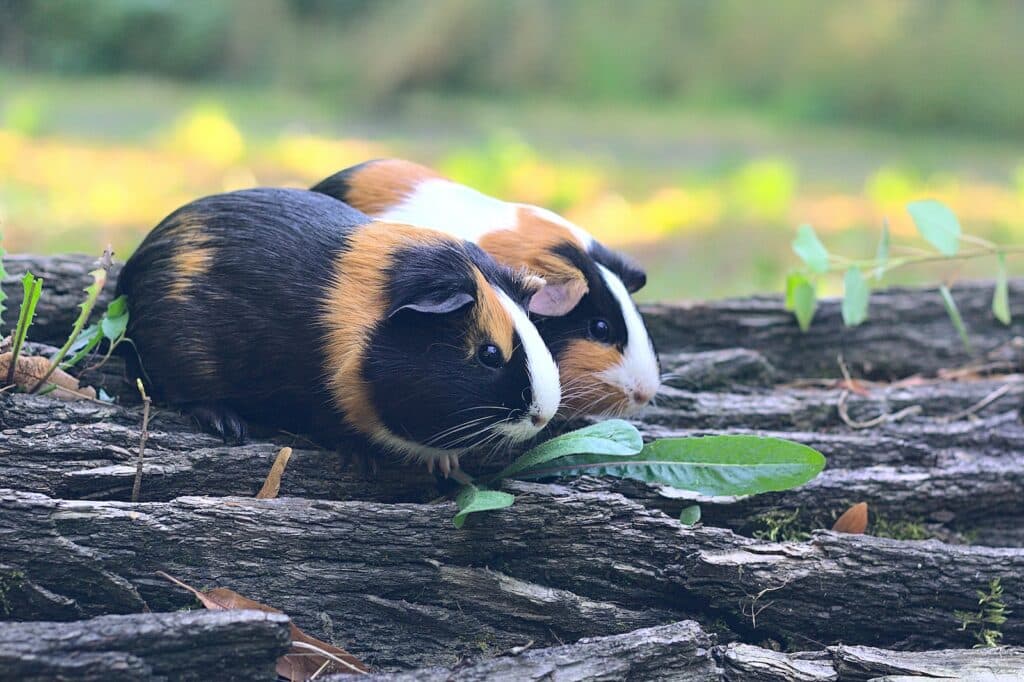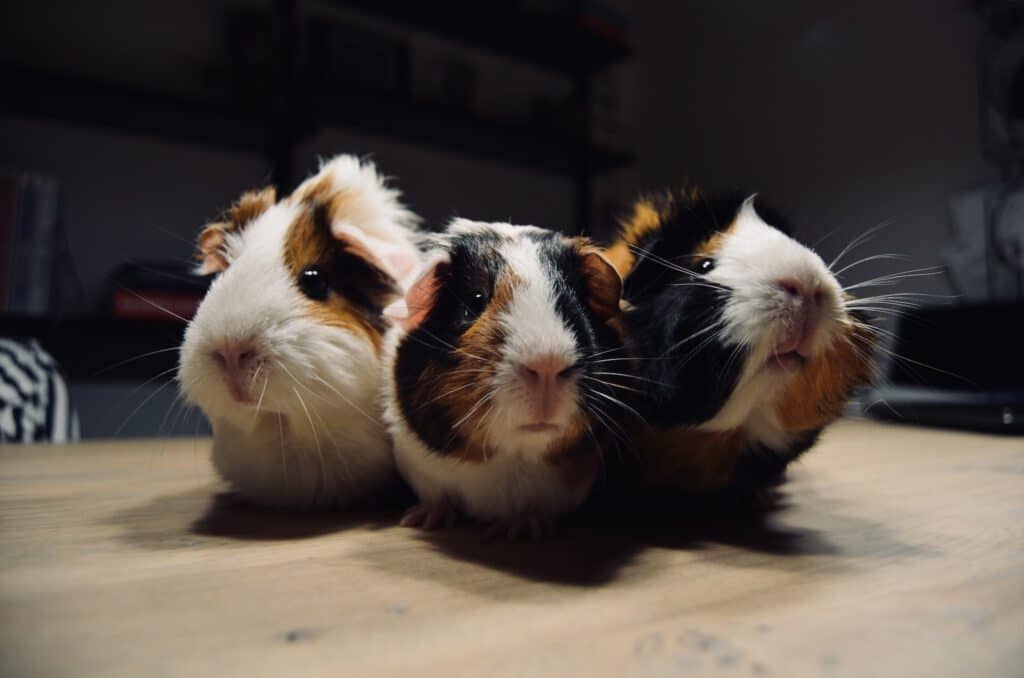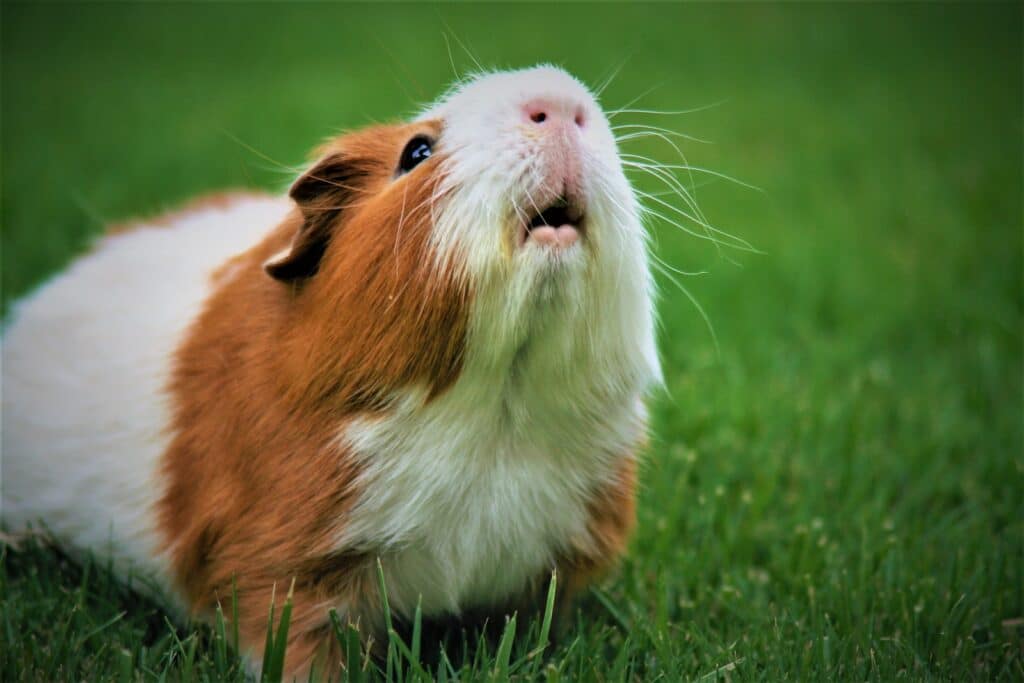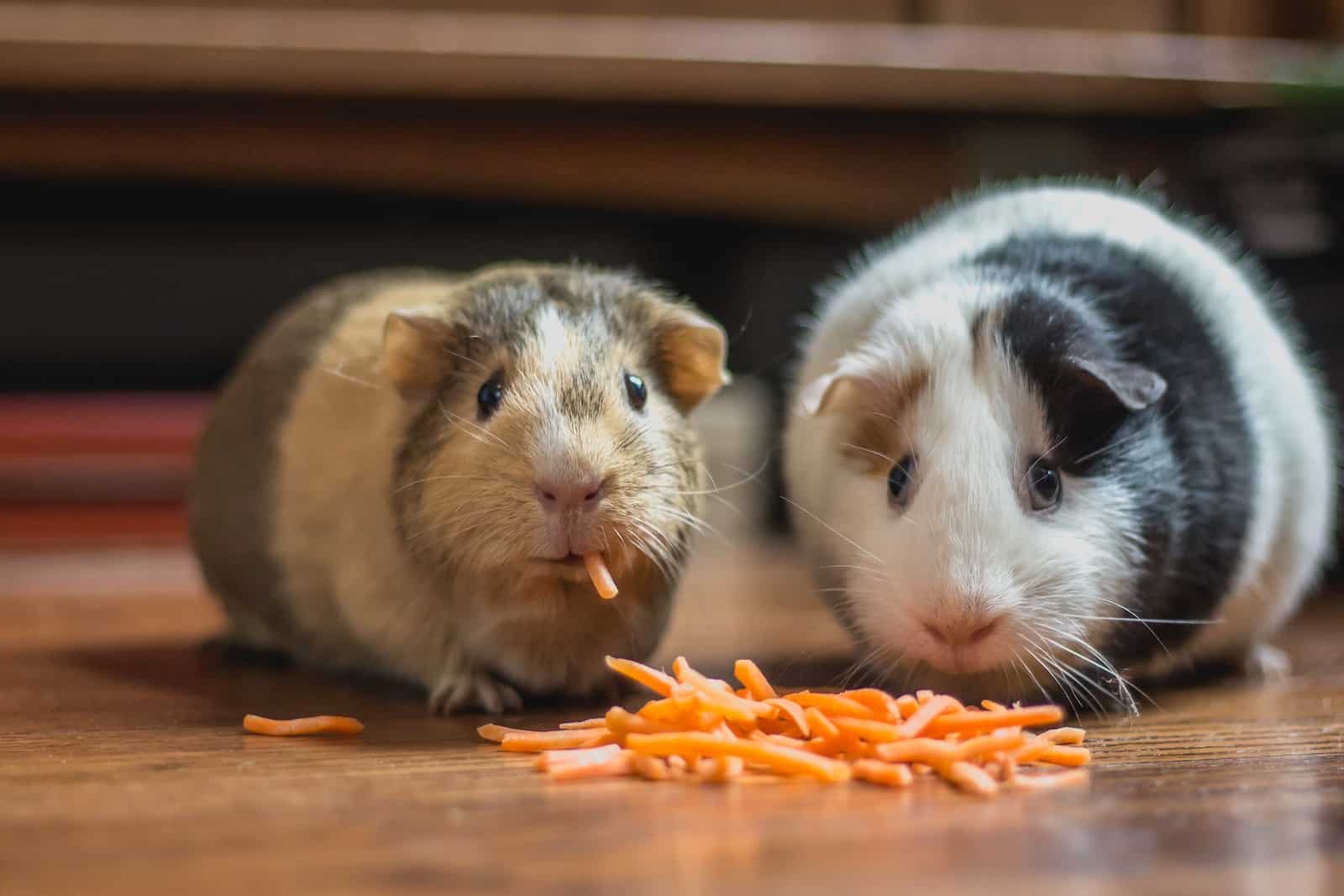Guinea pigs make for popular pets – they are cute, furry, and relatively low maintenance. However, one aspect that potential guinea pig owners often wonder about is – how long do guinea pigs live? Understanding the average lifespan of guinea pigs can help you make an informed decision about whether these adorable rodents are the right pet for you.
Average Lifespan of a Guinea Pig

The average lifespan of a guinea pig is 4-8 years. However, with proper care and nutrition, many guinea pigs live for up to 10-12 years. There are certain factors that determine whether your guinea pig will survive for longer or pass away sooner. We will explore those factors later on.
Before diving into details about their lifespan, let’s first understand what guinea pigs are. Guinea pigs, also called cavies, are rodents that belong to the Caviidae family. They are native to the Andes Mountains in South America and are a domesticated species.
Some key facts about guinea pigs:
- They typically grow to between 20-25 cms in length.
- An average adult guinea pig weighs between 700-1200 grams.
- Guinea pigs come in different breeds and have a variety of fur colors and coat patterns. Some of the popular breeds are the American, Abyssinian, Silkie, and Peruvian.
- They are social animals and prefer to live in pairs or groups.
- Guinea pigs eat only plant-based foods like hay, pellets, vegetables, and some fruits.
Now that we know a bit about these cute rodents, let’s move on to their lifespan.
First, let’s breakdown the lifespan based on gender.
Average Lifespan of Male vs Female Guinea Pigs
- Males: On average, male guinea pigs live for 4-6 years.
- Females: Female guinea pigs tend to be healthier and hardier as compared to the males. So they have a slightly longer average lifespan of 5-8 years.
Now that we know basic lifespan ranges, let’s dig deeper.
Average Lifespan of Guinea Pigs Across the World

The average lifespan of guinea pigs does show some geographic variation. This difference is primarily linked to factors like quality of care provided, diet, environment, and genetics.
Here is how it differs across regions:
- United States: 5-7 years
- United Kingdom: 5-6 years
- Australia: 4-5 years
- Africa: 3-4 years
So you can see that guinea pigs in the US and UK live slightly longer than other parts of the world. The reasons could be better veterinary care, good quality feed/produce, and favorable weather.
How Long Do Guinea Pigs Survive in the Wild?
Domestic guinea pigs have a much longer lifespan compared to wild guinea pigs or cavies.
The average lifespan of wild guinea pigs is only 3-5 years.
Why this stark difference? Life in the wilderness is tough for these creatures. They have to constantly watch out for predators, find food and clean water, and also deal with extreme weather. This high stress and uncertainty means shorter lifespans.
Domestic guinea pigs are safe from these risks in a controlled home environment. With proper care, they get to live longer.
Guinea Pig Lifespan Across Age Groups
Now you may be wondering – does the lifespan range vary as guinea pigs grow older?
The answer is yes. Guinea pigs are most vulnerable when they are very young or very old. Here is a breakdown:
Baby Guinea Pigs
This includes guinea pigs that are less than 6 months old. At this stage they are delicate and their survival depends heavily on factors like diet, environment, and genetics.
Average Lifespan: 2-3 years (if they survive beyond 6 months)
Mortality Rate: Up to 50% die before reaching adulthood
Young Adult Guinea Pigs
This covers guinea pigs between 6 months to 3 years of age. They are past the delicate baby phase but also not senior yet.
Average Lifespan: 5-6 years
Mortality Rate: 10%
Senior Guinea Pigs
Any guinea pig over 3 to 3.5 years of age is considered a senior. At this stage, risk of health issues increases.
Average Remaining Lifespan: 2-2.5 years
Mortality Rate: 20%
So in a nutshell – age and gender are both key factors that determine longevity. But next, let’s talk about reasons why guinea pigs may have a premature death.
5 Reasons Why Your Guinea Pig May Have a Shorter Lifespan
While 4-8 years is the average lifespan, many guinea pigs unfortunately don’t get to live that long.
Here are the top 5 reasons why guinea pigs die at a young age:
1. Genetic Health Issues – Some guinea pigs are born with genetic conditions that impact their quality of life and lifespan. For instance, ovarian cysts in females often lead to early death.
2. Neglect – Lack of basic care when it comes to feeding, housing, grooming, etc can jeopardize the guinea pig’s well-being. Guinea pigs are fragile and neglect means endangering their lives.
3. Accidents – Guinea pigs are prone to accidents like falls which can be fatal for them due to their delicate bones. Similarly ingesting foreign objects often causes intestinal blockages, resulting in premature death.
4. Disease – Bacterial and viral infections, parasites, tumors and other diseases can cut a guinea pig’s life short. Getting timely veterinary care is crucial.
5. Stress – Guinea pigs have sensitive nervous systems. Chronic stress weakens their immunity and makes them susceptible to illness. This in turn impacts lifespan.
The key is to provide your guinea pig optimal care and be vigilant about injuries, illnesses and any signs of distress. Doing so will boost their chances of a long healthy life.
Next, let’s talk about the factors that can enhance longevity.
6 Factors That Can Extend Your Guinea Pig’s Lifespan

Want to help your cavy live longer? Here are 6 key factors that support longevity:
1. Proper Shelter: Having an adequately spaced, well-ventilated cage/hutch for them is vital. Ensure the habitat is clean, dry, and maintained at a comfortable temperature.
2. Balanced Diet: Feed them a variety of vegetables, quality hay, and fortified pellets. Avoid sugary produce as well as junk foods. Ensure fresh and clean drinking water is always available.
3. Exercise & Playtime: Guinea pigs need ample opportunity to run around and also need environmental enrichment. So have play pens for exercise and use tunnels, chew toys etc to keep them stimulated.
4. Grooming & Healthcare: Brush them regularly to keep their skin and fur healthy. Also schedule regular vet check-ups plus follow vaccine protocols. Quick diagnosis and treatment of any illness also helps them live longer.
5. Affection & Bonding: Make sure to spend plenty of time interacting with your guinea pigs. Pet them frequently and hand feed them treats. All this helps build bonds, reduces stress and supports wellness.
6. Supplements (optional): In some cases, your vet may prescribe vitamin C, probiotics etc to support immunity and aid longevity. But do check with your vet first.
Keeping these best practices in mind and providing attentive care is crucial for enhanced longevity. But guinea pigs do show signs of aging over time. What are the common symptoms? Let’s find out.
8 Signs of Aging in Guinea Pigs
Here are the typical indications that your guinea pig is entering its senior years:
- Gradual weight loss
- Loss of appetite or digestion issues
- Increased sleeping/low activity
- Fur changing color/getting coarse
- Hunched posture while sitting
- Cloudy eyes/vision loss
- Lumps/tumors on skin
- Behavior changes like low mood
Seeing one or two of these symptoms occasionally may not be a big cause for concern. But if they persist or worsen, a vet visit is recommended. Timely help aids healthy aging.
Key Considerations for Guinea Pig Owners
If you just brought home a guinea pig or are planning to get one soon, keep these essential things in mind:
- Understand that guinea pigs may outlive other short-lived rodent pets like hamsters or mice. So you must be prepared to care for them potentially over many years.
- Budget not just for initial cage set-up costs but also for recurring expenses like food, vet bills, accessories replacement etc. These are required throughout their lifespan.
- Guinea pigs thrive when kept in a same-sex pair or group, not solitary. So plan to adopt accordingly if you want happy and healthy guinea pigs.
- Find an exotic pets vet in your location before adoption. Access to a specialized vet helps manage any health issues that may arise as they age.
- Be ready to adapt their care as guinea pigs transition into their senior years. This may mean more observation, changes in diet, revised habitat set-up etc.
Planning their care responsibly by factoring in their long lifespan will help ensure your guinea pigs live a good quality, joyful life with you.
Next up, let’s tackle some common questions new owners have regarding guinea pig lifespan.
Frequently Asked Questions About Guinea Pig Lifespan
Q1. Is there a way to determine my guinea pig’s age if I adopt from a shelter?
Unfortunately in such cases date of birth is generally unclear. Vets mainly rely on characteristics like weight, teeth condition and overall health / activity levels to gauge approximate age.
Q2. How long do teddy guinea pigs live?
Teddy guinea pigs are a long-haired breed. When cared for well, their lifespan is similar – anywhere from 4 to 8 years depending on factors like diet and genetics.
Q3. What’s the world record for longest living guinea pig?
According to the Guinness Book of World Records, the oldest guinea pig lived to be 14 years and 10.5 months of age. That’s nearly double their average lifespan! However, such extreme longevity is very rare even with best possible care.
Q4. Will getting a second guinea pig impact my existing piggy’s lifespan?
Getting a compatible friend for a lone guinea pig has a positive effect overall. The enrichment and companionship is healthy. As long they get along well and have enough space, a second piggy may actually help reduce stress and support longevity.
Q5. Is 8 years old considered senior age for guinea pigs?
Yes, generally once guinea pigs cross 6 to 8 years of age they transition into being considered senior pets. Their energy, immunity and health will gradually decline at this stage. Providing attentive care helps them remain comfortable.
Q6. How can I make my aging guinea pig more comfortable?
Make the cage/play areas senior friendly – use ramps instead of ladders, provide soft fleece bedding, keep water/hay feeders low. Also feed them easily digestible foods, keep them groomed and schedule more frequent vet check-ups. These measures help ease discomforts.
Q7. What happens when a guinea pig dies – do they show any signs?
In most cases guinea pigs pass away unexpectedly and peacefully in their sleep. Some signs occasionally seen close to death include lethargy, no appetite, trembling, lying still in a hunched position and weakness/inability to move.
Let Your Guinea Pigs Live Long, Healthy Lives
The average lifespan of a guinea pig may be only 4-8 years. However, being attentive owners and providing them proper nutrition, living conditions and veterinary care helps enhance longevity significantly. Many even get to celebrate their 10th or 12th birthdays!
So if you welcome these endearing rodents into your family, be committed to caring for them all through their golden years. It is deeply rewarding to enjoy their companionship over such a long time span and create happy memories together!



